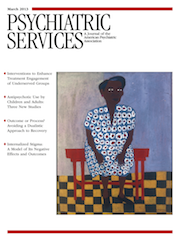States are facing a shrinking timeline to prepare for full implementation of the Affordable Care Act (ACA) on January 1, 2014, and many states are moving into high gear, according to the 12th annual 50-state survey of Medicaid and the Children’s Health Insurance Program (CHIP) released by the Kaiser Commission on Medicaid and the Uninsured. Calling 2013 “a pivotal year,” the survey report describes states as shifting their focus from making incremental program improvements to establishing new systems and executing the wide-ranging changes required by the ACA. Progress varies widely from state to state, reflecting divergent political will and ideology and continuing fiscal pressures.
A major ACA provision requires all state Medicaid programs to have online enrollment in place by January 2014. Such a system will require Web-based, paperless, real-time enrollment processes that rely on electronic data and minimize administrative burdens on individuals and eligibility workers. As of January 1, 2013, a total of 47 states had taken advantage of a time-limited 90% federal matching rate to apply for funds to make major upgrades to their aging Medicaid enrollment systems, and 42 state Medicaid programs had already begun development work on their information technology infrastructures. In addition to this significant federal funding, the Centers for Medicare and Medicaid Services is providing technical assistance and has created a central repository for states to pool resources on technology development and reuse technology developed by leader states.
Residents of 37 states—four more than last year—can now apply online for Medicaid or CHIP, and 28 states allow families to renew online, including eight states that added this capability in 2012. The survey report also notes that 36 states now allow residents to create online accounts; however, fewer than half of these accounts have advanced features, such as the ability to receive paperless notices or upload electronic images of documents, which maximize efficiency.
Beginning in 2014, the ACA will require states to conduct annual coverage renewals on the basis of available information rather than requesting information and documentation from individuals. Forty-six states already have 12-month renewal periods for both children and parents, but in only 22 states can coverage be renewed automatically based on available information, according to the survey report. In 2014, states will also be barred from conducting face-to-face interviews and requiring asset tests for eligible applicants. To help states electronically confirm eligibility, the ACA will establish a new federal data hub in 2014.
Illustrating the effectiveness of electronic verification, as of January 2013, a total of 45 states had adopted a data match with the Social Security Administration (SSA) to verify citizenship for enrollment in Medicaid or CHIP, the survey report notes. This new option has eliminated an extensive paper-based documentation process in favor of a real-time lookup or an automated overnight “batch” process that confirms citizenship status on thousands of individual records. Adoption of the new SSA data match, which can be seen as a precursor to the 2014 federal data hub, has been swift, the Kaiser survey found, and states report increased efficiency as well as highly successful match rates. In addition, as of January 2013, a total of 11 states reported having a state data hub that allows access to multiple information sources at once. However, paper still remains the predominant method currently used by states to verify income, according to the Kaiser survey. The move to electronic verification under the ACA will represent a major procedural and cultural change for many states. As states move to these streamlined, data-driven systems, they will need to adjust eligibility worker roles and expectations to align with the new paradigm.
The Supreme Court's 2012 decision upholding the ACA eliminated financial penalties for states that do not undertake Medicaid expansion. Only 22 states have indicated that they expect to expand Medicaid eligibility to all residents with incomes of up to 138% of the federal poverty level (FPL), or $24,344 for a family of three in 2012 (133% of the FPL as provided in the ACA plus a 5% income “disregard” allowed by the law). Medicaid currently serves about 60 million people, and as many as 17 million more people are expected to qualify for Medicaid if all states expand the program.
However, Medicaid eligibility for adults in 2012 continued to fall far short of that for children, and some states scaled back coverage for parents and other adults, the survey found. Across states, the median level of parent eligibility remained very low—at 61% of the FPL, compared with a median of 235% for children. Thirty-three states limited parent eligibility to less than the FPL ($19,090 for a family of three in 2012), including 16 states that limited eligibility to parents earning less than 50% of the FPL ($9,545 for a family of three). Moreover, only nine states provided full Medicaid coverage to adults without dependent children in 2012. Although two states expanded Medicaid coverage for adults in 2012, three states were able to reduce such coverage of adults where it was not protected by the ACA’s requirement to maintain current eligibility rules in the lead-up to 2014.
Much work remains to be done to prepare for full implementation of the APA next year, the report concludes, and it will be important for states to leverage the experience of leader states. The 79-page survey report,
Getting Into Gear for 2014: Findings From a 50-State Survey of Eligibility, Enrollment, Renewal and Cost-Sharing Policies in Medicaid and CHIP, 2012–2013, is available on the Kaiser Commission site at
www.kff.org/medicaid/8401.cfm.

